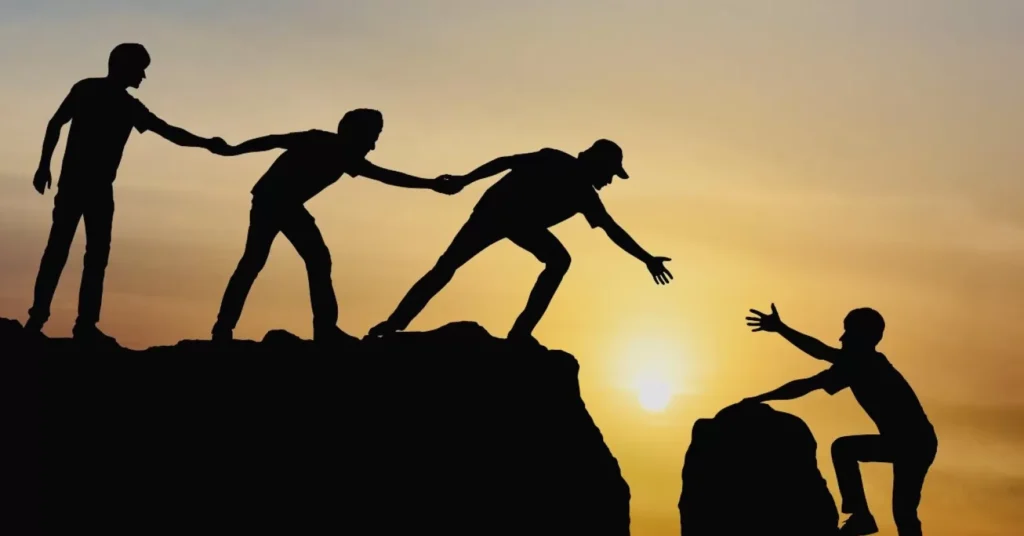The Invisible Load We All Carry
Most of us are no strangers to being the dependable one. The one who checks in on Everyone, keeps family gatherings running smoothly, handles last-minute crises at work, and makes sure no one feels left behind. We pride ourselves on being reliable, generous, and supportive — and often, we’re genuinely happy to be there for the people we love.
But somewhere along the way, between juggling other people’s needs and expectations, we slowly lose sight of ourselves. Days blur into weeks, and months pass with our own emotional and physical needs pushed to the back burner.
It’s a silent, invisible load. One that weighs heavily not just on our bodies, but on our hearts and minds. We might feel proud to be “the strong one,” but carrying everyone else without carrying yourself can lead to an inevitable breaking point.


Why You Stop Prioritizing Yourself
It doesn’t happen overnight. You tell yourself, “I’ll rest when this project is done,” or “I’ll take a break once they’re okay.” Slowly, these moments stack up until self-care feels selfish, even indulgent.
Many people have been conditioned to equate personal care with weakness or guilt. Society often celebrates sacrifice — the selfless parent, the tireless leader, the dependable friend — while quietly dismissing those who step back to tend to their own well-being.

And so you continue to give, pouring from a cup that’s long been empty, hoping that your love and effort will somehow be enough to sustain everyone else.
The Quiet Consequences of Neglect
While it might feel noble to put yourself last, the consequences of doing so are often deeper than we realize. Constantly living in “survival mode” leads to emotional exhaustion, resentment, and even physical symptoms like chronic headaches, insomnia, digestive issues, and body aches.
When you’re so focused on carrying others, your own mental clarity fades. Decision-making becomes harder. Emotions feel heavier. You might find yourself snapping over small things, withdrawing from people you love, or losing passion for things that once brought you joy.
Worse still, this pattern can chip away at your identity. You start to forget what makes you happy, what inspires you, what calms your soul. Everything becomes a duty, a task, a weight. And in losing touch with yourself, you become less effective in supporting those you care about.

Real-Life Stories: The Weight We Hide
We’ve all seen it — the colleague who never takes a sick day, the parent who sacrifices sleep to help with homework, the friend who always says “yes” even when they’re silently drowning.
Maybe you’ve been that person. Maybe you still are.
One woman shared how, after years of caring for her family while working full-time, she realized she couldn’t remember the last time she’d done something purely for herself. A simple question — “What makes you happy?” — left her speechless.
Another young professional admitted to burning out in his twenties because he was too afraid to say no. “I thought if I stopped carrying everyone, they’d fall apart. Turns out, I was the one falling apart.”
These stories are more common than we admit. And they’re a reminder that being everything to everyone is not only unsustainable — it’s unnecessary.
Why Self-Care Isn’t Selfish
There’s a powerful shift that happens when you realize self-care isn’t about bubble baths and spa days (though those are lovely). It’s about meeting your own needs so you can show up for others with clarity, strength, and genuine compassion.
Choosing yourself isn’t abandoning others. It’s building the resilience needed to truly support them. When you’re rested, centered, and emotionally nourished, you become a better friend, partner, parent, and leader.
It’s about refilling your own cup, not so you can pour endlessly into others, but so you can choose when and how to give without depleting yourself.
Simple, Powerful Ways to Reclaim Yourself
1. Start with one small act of self-kindness daily
Whether it’s five minutes of deep breathing, a quick walk in the sun, or reading a chapter of a book you love — tiny rituals matter.
2. Learn to say “not right now”
Setting boundaries isn’t about shutting people out. It’s about honoring your capacity and protecting your energy for what matters most.
3. Reconnect with what you love
When was the last time you did something just because it made you happy? Dance in your kitchen. Write bad poetry. Bake cookies. Rediscover those simple joys that remind you who you are beyond your roles.
4. Build your support tribe
You don’t have to carry everything alone. Lean on trusted friends, family, or communities where you feel safe and seen.
5. Give yourself permission to rest
You don’t have to earn your rest. You’re allowed to take a break simply because you need one. Rest isn’t a reward; it’s a requirement.

The Ripple Effect of Choosing Yourself
When you start caring for yourself, something remarkable happens. The resentment fades. The exhaustion eases. And you begin showing up in your relationships and work with more clarity, presence, and authenticity.
People around you feel the difference. They see a version of you that’s energized, empathetic, and joyful — not one running on fumes. And surprisingly, they don’t fall apart when you set boundaries. They adjust. They learn to respect your limits. Some might even feel inspired to do the same for themselves.
By choosing yourself, you give others permission to do the same. It’s a ripple effect of healthier, happier, more balanced human connections.
Signs You Might Be Forgetting Yourself
If you’re not sure whether this applies to you, here are a few quiet signs:
- You feel guilty when resting.
- You constantly prioritize others’ needs over your own.
- You can’t remember the last time you did something just for fun.
- You feel emotionally numb or irritable for no clear reason.
- You wake up already feeling tired.
- Saying “no” fills you with anxiety.
If even one of these feels familiar, it might be time to pause and check in with yourself.
The Courage to Choose Yourself
It takes courage to step off the hamster wheel of endless giving. To say, “I matter too.” To redefine what strength means, not as constant sacrifice, but as balance, presence, and conscious choice.
The world doesn’t need another burnt-out helper. It needs people who are whole, resilient, and alive — people who give from a place of abundance, not depletion.
So, what would happen if today, you carried yourself too?
What would shift if you became as compassionate to yourself as you are to everyone else?
Do follow UAE Stories on Instagram.
Why Loneliness in Dubai’s Founder Culture Is Real — But Overlooked













